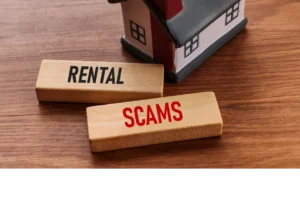What is a Lease Guarantor?
A lease guarantor is an individual or entity who agrees to take responsibility for the lease obligations of a tenant if they are unable to fulfill them. They provide a level of financial security to the landlord in case the tenant fails to pay rent or causes damage to the property. A lease guarantor ensures that the landlord’s interests are protected and that the lease terms are met. They are typically required when a tenant does not meet the income or credit requirements set by the landlord. Without a guarantor, the landlord may be at a greater risk of financial loss. A lease guarantor acts as a co-signer for the lease agreement, assuming legal and financial liability for the tenant’s actions.
Key Takeaway:
 A lease guarantor is a person who agrees to take responsibility for a tenant’s lease obligations if the tenant is unable to fulfill them. They act as a financial backup for landlords and provide reassurance that rent and other lease obligations will be paid, reducing the risk for the landlord.
A lease guarantor is a person who agrees to take responsibility for a tenant’s lease obligations if the tenant is unable to fulfill them. They act as a financial backup for landlords and provide reassurance that rent and other lease obligations will be paid, reducing the risk for the landlord.- A rent guarantor is typically required when a tenant has limited or poor credit history, has a low income, or is a student or first-time renter. Landlords may also require a guarantor if the tenant doesn’t meet their income requirements or has prior eviction or rental history issues.
- A guarantor must meet certain criteria, such as having a good credit score, stable income, and a willingness to take on the financial responsibility of the lease. They may be asked to provide proof of income, undergo a credit check, and sign a guarantor agreement.
Why would you need a rent guarantor?
A rent guarantor can be necessary for several reasons when entering into a lease agreement. They serve as a financial backup in case the primary renter is unable to meet their obligations. This could be due to insufficient income, unreliable credit history, or other factors that may make the landlord hesitant to rent to them. By having a rent guarantor, the landlord has an added layer of security, ensuring that the rent will be paid even if the primary renter encounters financial difficulties.
In situations where a potential tenant lacks a stable income or has a limited credit history, a rent guarantor can provide reassurance to the landlord. The guarantor agrees to take on the responsibility of paying rent if the primary renter fails to do so. This provides the landlord with the confidence that their rental income will not be compromised and reduces the risk of potential financial loss.
It’s important to note that the role of a rent guarantor is not limited to just paying rent. They may also be responsible for any damages caused by the primary renter, ensuring that the property is taken care of during the lease term. This additional layer of protection further encourages landlords to consider applicants who may not meet their initial criteria.
According to the article “What is a lease guarantor?” by an undisclosed source, having a rent guarantor can increase the likelihood of being accepted into a lease agreement, especially for individuals who may have weak financial backgrounds or limited credit histories.
What are the requirements for a guarantor?
A lease guarantor, also known as a lease co-signer, is an individual who agrees to take responsibility for a tenant’s lease obligations if they are unable to fulfill them. They provide financial security to the landlord by guaranteeing the payment of rent and any damages caused by the tenant. A lease guarantor helps tenants who may not meet the landlord’s requirements on their own.
It is important for landlords to thoroughly screen the guarantor and ensure they meet the necessary financial qualifications. Having a lease guarantor minimizes the risk for the landlord and increases the likelihood of securing a rental property for tenants who may not have a strong credit history or steady income. What are the requirements for a guarantor? Well, aside from a pulse and a willingness to sign away their life savings, not much!
Who can act as your guarantor?
Who can serve as your lease guarantor?
- Parents or other family members
- Close friends or roommates
- Employers or co-workers
- Professional guarantor services
- Landlords or property management companies
- Financial institutions or banks
Additionally, it’s important to note that not everyone is qualified to act as a guarantor. They should have a good credit history, stable income, and be willing to take on the responsibility of ensuring the lease obligations are met. Having a guarantor can provide landlords with added security, especially for tenants who may have a limited credit history or income. A true fact: According to a report by The Balance, landlords often require a lease guarantor to mitigate the risk of potential rental default.
Need a Lease Agreement?
Access 150+ state-specific legal landlord forms, including a lease.
Conclusion
A lease guarantor is a person or entity who guarantees the lease obligations of a tenant. They ensure that in case the tenant is unable to fulfill their obligations, the landlord will still receive the agreed-upon rent. This arrangement provides financial security to the landlord and increases the likelihood of a successful lease agreement. Tenants with limited credit history or unstable income commonly use lease guarantors.
Being a lease guarantor is a significant commitment that requires a thorough understanding of the lease terms and potential risks involved. They should carefully evaluate the tenant’s ability to fulfill their obligations before agreeing to become a guarantor.
One important detail to note is that lease guarantors are legally obligated to fulfill the tenant’s obligations if the tenant defaults. This means that they may be held responsible for paying rent, fees, and damages if the tenant fails to do so. It is crucial for a lease guarantor to thoroughly review the lease agreement and consider the potential financial implications before agreeing to become a guarantor.
In a similar scenario, Amy agreed to be a lease guarantor for her niece’s apartment rental. Unfortunately, her niece lost her job and was unable to pay the rent. As a result, the landlord demanded that Amy fulfill her niece’s obligations as the lease guarantor. Although Amy was initially hesitant about becoming a guarantor, she understood the potential risks involved and had anticipated the possibility of such a situation. Therefore, she fulfilled her obligations as a lease guarantor and paid the outstanding rent on her niece’s behalf. This experience taught Amy the importance of carefully considering the responsibilities and potential risks associated with being a lease guarantor.
FAQs About What is a Lease Guarantor?
What is a lease guarantor?
A lease guarantor is a person who co-signs an apartment lease alongside a tenant and legally commits to paying the rent if the tenant fails to do so.
Why would you need a rent guarantor?
You may need a rent guarantor if you are unable to fulfill the financial requirements set by landlords, such as having an income that meets a certain threshold or if you have little rental history, credit history, or a bad credit score.
What are the requirements for a lease guarantor?
For a guarantor, the income requirement is typically 80 to 100 times the monthly rent of the apartment they are guaranteeing. They need to provide documents and information such as pay stubs, tax returns, bank statements, and their social security number to prove their financial stability.
Who can act as your guarantor?
Family members and close friends are the ideal options for guarantors.
Can I rent with bad credit if I have a lease guarantor?
Yes, having a guarantor can help you overcome the roadblock of bad credit. Landlords may be hesitant to rent to tenants with bad credit, but a financially stable guarantor can assure the landlord that the rent will be paid, increasing your chances of being approved for a lease.
Source: PayRent













 Accessibility
Accessibility